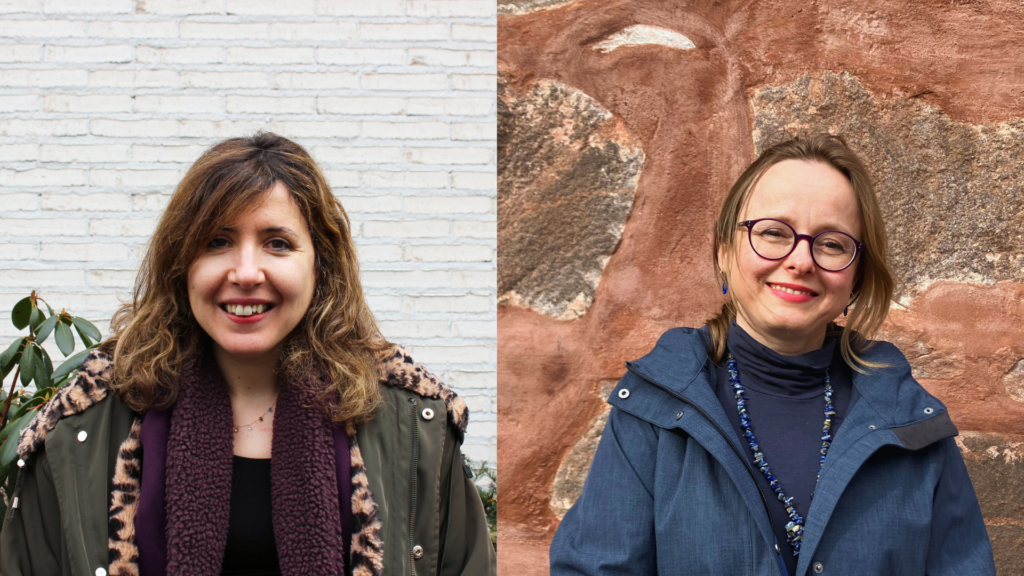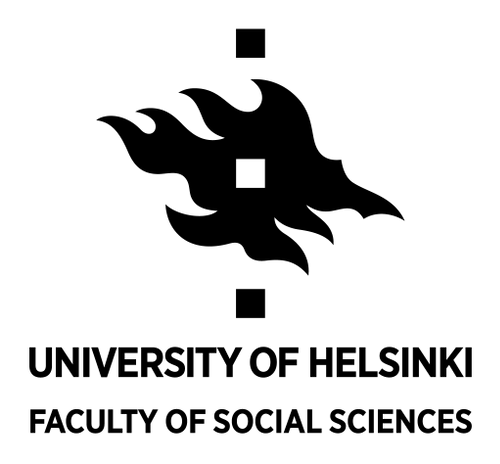In the beginning of April, we welcomed two new visiting fellows at the Centre for the Social Study of Microbes: Andrea Núñez Casal (pictured left), a Senior Researcher in the Spanish National Research Council, and Sevgi Mutlu Sirakova (pictured right), a Doctoral Researcher at the LMU–Rachel Carson Center (RCC). Andrea and Sevgi are visiting the CSSM as part of our annual fellowship programme, which invites selected researchers to join us in Helsinki for 1–3 months to work on their ongoing projects and contribute to the activities of the Centre. Later in spring, they will be joined by Stefanie Fishel from the University of the Sunshine Coast, Túllio Dias da Silva Maia from the University of Amsterdam, and Björn Reichhardt from the University of Fribourg.
Andrea Núñez Casal
Andrea is an interdisciplinary researcher examining entanglements between microbes, embodiment, and inequalities. To date, Andrea’s research has focused on socio-cultural aspects of the human microbiome and immunology as well as feminist embodied approaches and methods to address health inequalities associated with antimicrobial resistance and chronic/recurrent infections. In her work, Andrea draws from science and technology studies, gender and body studies, and critical global and public health, and uses qualitative research methods, such as multi-sited and digital ethnographies, and historical and policy analysis. You can learn more about Andrea’s work on her website.
Sevgi Mutlu Sirakova
Sevgi researches traditional fermentation practices in Bulgaria and Turkey, using ethnographic methods to collect multispecies stories of fermentation, particularly yoghurt. Through this research, Sevgi hopes to draw attention to rapidly disappearing cultural heritage and skills that are necessary to sustain microbial diversity. During the CSSM fellowship, Sevgi will develop ideas for a future exhibition on yoghurt and her postdoctoral research, in which she aims to integrate degrowth debates with fermentation research.



